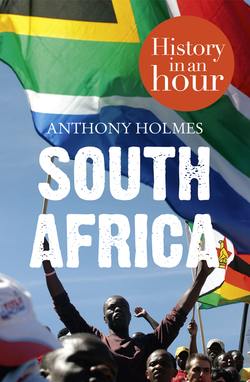Читать книгу South Africa: History in an Hour - Anthony Holmes, Anthony Holmes - Страница 6
ОглавлениеIntroduction
On 10 April 1993 South Africans held their collective breath.
In the midst of discussions on the transition from a white oppressive regime to a multiracial democracy, Chris Hani – the black leader of the South African Communist Party and Chief of Staff of the armed wing of the African National Congress (ANC) – was murdered. White ultra-conservatives gunned him down in front of his family, as he stepped out of his car.
This assassination was part of a plot to destabilize the negotiations to end apartheid – a system of racial segregation in force from 1948–1994 in South Africa. His neighbour, a white woman, rushed to call the police and the perpetrator, Janusz Waluš, was arrested. His accomplice Clive Derby-Lewis, a Member of Parliament in the Conservative Party and right-wing extremist, was subsequently also arrested. Both men were found guilty of murder.
The country was poised on a knife-edge. Black people were incensed and enraged at the assassination. White people were shocked by the brutality of the crime and terrified of the expected black backlash. It took a man of incredible wisdom, courage and statesmanship to make a speech to calm things down. A man who had been recently released after being jailed for twenty-seven years by the same oppressive, right-wing regime. A man who had not yet ascended to any office of State but who was generally acknowledged to be the de facto leader of the country.
Nelson Rolihlahla Dalibhunga Mandela broadcast the following message to his people, to his country; a voice that had been silenced for so long, but which was to become one of the world’s best known voices:
Tonight I am reaching out to every single South African, black and white, from the very depths of my being. A white man, full of prejudice and hate, came to our country and committed a deed so foul that our whole nation now teeters on the brink of disaster. A white woman, of Afrikaner origin, risked her life so that we may know, and bring to justice, this assassin. The cold-blooded murder of Chris Hani has sent shock waves throughout the country and the world . . . Now is the time for all South Africans to stand together against those who, from any quarter, wish to destroy what Chris Hani gave his life for – the freedom of all of us.
Although some riots did follow Chris Hani’s murder, the two sides of the negotiation were galvanized into action. The process was not allowed to drag on and they rapidly came to the agreement that democratic elections should take place on 27 April 1994, just over a year after Hani’s assassination. The short speech given by Nelson Mandela saved South Africa from descending into chaos.
What tortuous path led South Africa to this dramatic moment in its history? To appreciate the ‘politics of colour’ that encompassed the lives of Nelson Mandela, Walter Sisulu, Oliver Tambo, John Vorster, P. W. Botha, F. W. de Klerk and millions of South Africans of all races, religions, professions, and beliefs in the second half of the twentieth century one must go back through the history of South Africa.
And this, in an hour, is South Africa
